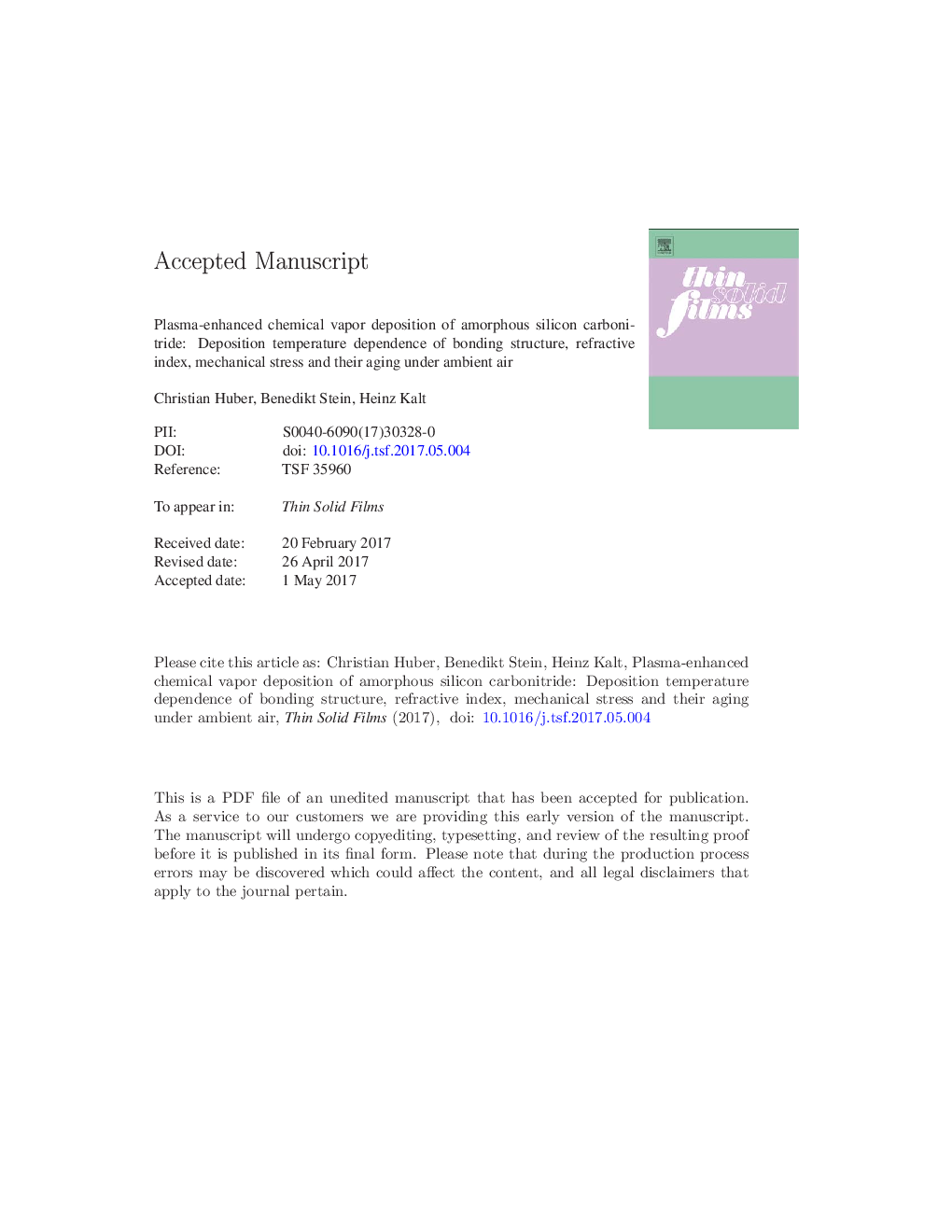| Article ID | Journal | Published Year | Pages | File Type |
|---|---|---|---|---|
| 5465820 | Thin Solid Films | 2017 | 12 Pages |
Abstract
Amorphous silicon carbonitride deposited at temperatures between 200 °C and 395 °C by plasma-enhanced chemical vapor deposition has been characterized by Fourier transfrom infrared (FTIR) spectroscopy, X-ray photoelectron spectroscopy, ellipsometry, ultraviolet-visible-near-infrared reflectance-transmittance spectroscopy, residual stress measurements and etch tests in hydrofluoric acid (HF). The optical and mechanical properties have been measured both directly after deposition and after storage under ambient air. The bonding structure derived from FTIR spectra indicates that higher deposition temperatures lead to a denser material with a higher degree of crosslinking due to an increased dissociation of hydrogen molecules, thereby reducing the amount of hydrogen-terminated bonds. This results in an increased refractive index and a reduced compressive stress level as well as a better resistance against HF etching of the as-deposited layers. Diffusion of ambient moisture into the thin-films is identified as the main aging mechanism which affects layers deposited at lower temperatures more pronouncedly due to their higher degree of porosity. The resulting adsorbed water molecules cause an increase of layer thickness accompanied by a decrease of refractive index and an increase of compressive stress.
Related Topics
Physical Sciences and Engineering
Materials Science
Nanotechnology
Authors
Christian Huber, Benedikt Stein, Heinz Kalt,
